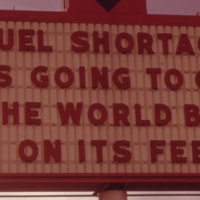How an Economic Crisis Can Optimize Effectiveness
In times of an economical crisis, many companies have the natural reflex to cut down investments in marketing and sales. They do so because, under pressure of lower sales, they are desperate to protect their absolute profit.
In short term, this can be a sound strategy, but it is seldom sustainable over a longer period.
A company that, during a crisis, is able to optimize its commercial effectiveness and efficiency as well as its total brand experience stands a very good chance to do better than its competitors and to come out as a winner when the crisis eventually passes by.
Optimizing commercial effectiveness and efficiency
During a crisis (but also beyond) there are a few tactics that can be applied to avoid revenue and margin erosion:
- Focus on added value instead of low price
- Target lucrative market segments and optimize value propositions
- Monitor customers and cherish them
- Maintain (or boost) marketing and sales investments
Innovation to improve brand experience
Especially during a crisis and when the war on price is raging or imminent, the best defence is to improve the total brand experience. It starts with the offering but it stretches over the complete customer lifecycle.
To improve the total brand experience and keep ahead on competitors, continuous innovation is a prerequisite.
What kind of innovation is required largely depends on the specific situation of the company and the market it is operating in.
It will be wise to keep 2 distinct tracks on-going:
- A short term innovation track to get quick wins and relieve the pressure on profit
- A strategic, long term innovation track to build the future after the crisis or – if necessary – to build a new future in another business area that is less compromised by the crisis
Innovation is also not somethings that you can do just on the side. it requires a structured approach and help from specialists can be very useful.
Detecting room for improvement
Companies that are eager to improve the effectiveness and efficiency of their marketing investments and/or that would like to get rid of old marketing habits should consider an audit of their marketing approach.
This is especially valid during a crisis period, when marketing budgets are under pressure.
Such an assessment starts with the marketing plan, but also includes marketing and sales processes and specific actions and activities.
It leads to the identification of weak and strong elements in the maketing-sales approach and to pragmatic guidelines for improvement.
Never waste a good crisis!
A crisis – for those who have the guts – offers a unique opportunity to take an edge over on the competition.
Those who – contrary to what most companies tend to do – manage to improve the effectiveness of their marketing and sales, will see their efforts rewarded by a stronger position during and after the crisis.


